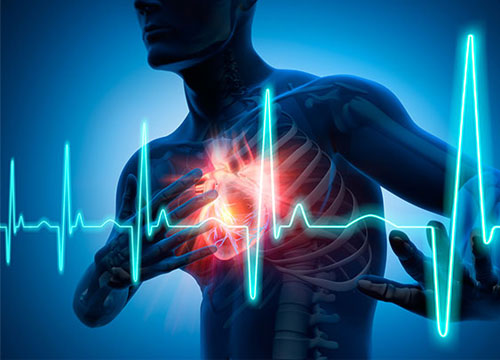Welcome To Neumed Center For Neurology

𝐄𝐥𝐞𝐜𝐭𝐫𝐨𝐩𝐡𝐲𝐬𝐢𝐨𝐥𝐨𝐠𝐲 (𝐄𝐏) 𝐓𝐫𝐞𝐚𝐭𝐦𝐞𝐧𝐭 𝐢𝐧 𝐁𝐡𝐮𝐛𝐚𝐧𝐞𝐬𝐰𝐚𝐫
Electrophysiology (EP) is a specialized diagnostic procedure used to evaluate the electrical activity of the heart and detect abnormal heart rhythms, known as arrhythmias. Also referred to as invasive cardiac electrophysiology, this test helps identify the source of irregular heartbeats and guides treatment strategies such as medication, catheter ablation, or device implantation.
The heart’s electrical system controls the timing and rhythm of each heartbeat. When this system malfunctions, it can lead to symptoms like palpitations, dizziness, fainting, or even cardiac arrest. EP studies are essential for diagnosing these conditions accurately.
𝐖𝐡𝐚𝐭 𝐈𝐬 𝐄𝐥𝐞𝐜𝐭𝐫𝐨𝐩𝐡𝐲𝐬𝐢𝐨𝐥𝐨𝐠𝐲?
Electrophysiology is a branch of medical physiology that examines the electrical properties of biological cells and tissues. It involves recording and analyzing electrical signals generated by neurons and cardiac cells. EP techniques are also used to study the nervous system’s electrical behavior on a large scale.
𝐏𝐫𝐢𝐧𝐜𝐢𝐩𝐥𝐞 𝐚𝐧𝐝 𝐌𝐞𝐜𝐡𝐚𝐧𝐢𝐬𝐦
EP testing is based on measuring ion flow within biological tissues. Electrodes are placed to record this activity, and the types of electrodes used include:
. 𝐒𝐨𝐥𝐢𝐝 𝐜𝐨𝐧𝐝𝐮𝐜𝐭𝐨𝐫𝐬 (e.g., discs and needles)
. 𝐅𝐥𝐞𝐱𝐢𝐛𝐥𝐞 𝐩𝐨𝐥𝐲𝐦𝐞𝐫𝐬 𝐨𝐫 𝐜𝐢𝐫𝐜𝐮𝐢𝐭 𝐛𝐨𝐚𝐫𝐝 𝐭𝐫𝐚𝐜𝐢𝐧𝐠𝐬
. 𝐄𝐥𝐞𝐜𝐭𝐫𝐨𝐥𝐲𝐭𝐞-𝐟𝐢𝐥𝐥𝐞𝐝 𝐡𝐨𝐥𝐥𝐨𝐰 𝐭𝐮𝐛𝐞𝐬 (e.g., glass pipettes with potassium chloride solution)
During an EP study, a thin wire electrode is inserted into a vein—typically in the groin or neck—and guided to the heart using fluoroscopy, a specialized X-ray imaging technique. This allows physicians to monitor and measure electrical signals within the heart chambers and pinpoint the origin of arrhythmias.
𝐄𝐱𝐩𝐞𝐫𝐭 𝐂𝐚𝐫𝐞 𝐚𝐭 𝐍𝐞𝐮𝐦𝐞𝐝
At 𝐍𝐞𝐮𝐦𝐞𝐝–𝐓𝐡𝐞 𝐂𝐞𝐧𝐭𝐞𝐫 𝐟𝐨𝐫 𝐍𝐞𝐮𝐫𝐨𝐥𝐨𝐠𝐲, 𝐁𝐡𝐮𝐛𝐚𝐧𝐞𝐬𝐰𝐚𝐫, electrophysiology testing is conducted under the guidance of 𝐃𝐫.𝐀𝐤𝐡𝐢𝐥𝐚 𝐊𝐮𝐦𝐚𝐫 𝐏𝐚𝐧𝐝𝐚, a renowned neurologist and cardiac electrophysiology specialist. The clinic is equipped with advanced diagnostic tools, modern infrastructure, and a skilled medical team to ensure accurate diagnosis and personalized treatment.

